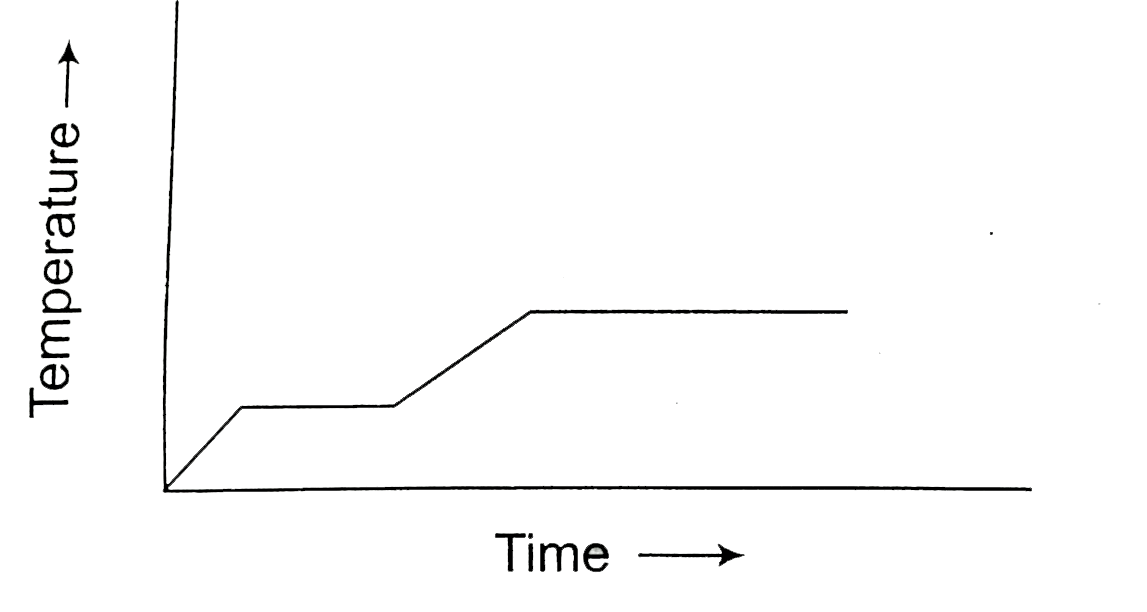The greater the mass of a body , the greater is its latent heat capacity. Is this true of false?
True. (Note that the specific latent heat capacity does not depend on mass.)
Topper's Solved these Questions
- CALORIMETRYBOOK - CENGAGE PHYSICSCHAPTER - CALORIMETRYEXERCISE - Exercise 1.2
22 Videos
- CALORIMETRYBOOK - CENGAGE PHYSICSCHAPTER - CALORIMETRYEXERCISE - Exercise 1.3
18 Videos
- CALORIMETRYBOOK - CENGAGE PHYSICSCHAPTER - CALORIMETRYEXERCISE - Solved Example
13 Videos
- BASIC MATHEMATICSBOOK - CENGAGE PHYSICSCHAPTER - BASIC MATHEMATICSEXERCISE - Exercise 2.6
20 Videos
- CENTRE OF MASSBOOK - CENGAGE PHYSICSCHAPTER - CENTRE OF MASSEXERCISE - INTEGER_TYPE
1 Videos
Similar Questions
Knowledge Check
Heat capacity of a body is
Adependent on its shape.Bdependent on its mass.Cdependent on its temperature.DNone of these.Assertion: Specific heat of a body is always greater than its thermal capacity.
Reason: Thermal capacity is the heat required for raising temperature of unit mass of the body through unit degreeAIf both, Assertion and Reason are true and Reason is the correct explanation of the Asserrion.BIf both,Assertion and Reason are true but Reason is not a correct explanation of the Assertion.CIf Assertion is true but the Reason is false.DIf both, Assertion and Reason are false.The heat capacity of a body depends on
Athe heat given.Bthe temperature raised.Cthe mass of the body.Dthe material of the body.
What is latent heat. State its SI unit.
View SolutionThe centre of mass of a rigid body always lies inside the body, Is this statement true or false?
View SolutionThe amount of heat absorbed by a body while raising its temperature is given by the equation. Q=msθ , here Q is the amount of heat, m is the mass of the body, s is the specific heat capacity and θ is the rise tmemperature. Dertermine the S.I. unit and C.G.S. unit of heat and specific heat capacity
View SolutionThe heat capacity of a body depends on
View Solution
Heat is supplied to a certain homogeneous sample of matter, at a uniform rate. Its temperature is plotted against time, as shown Which of the following conclusions can be drawn?
(i) Its specific heat capacity is greater in the solid state than the liquid state.
(ii) Its specific heat capacity is greater in the liquid state than in the solid state.
(iii) Its latent heat of vaporization is greater than its latent heat of fusion.
(iv) Its latent heat of vaporization is smaller than its latent heat of fusion
View Solution
